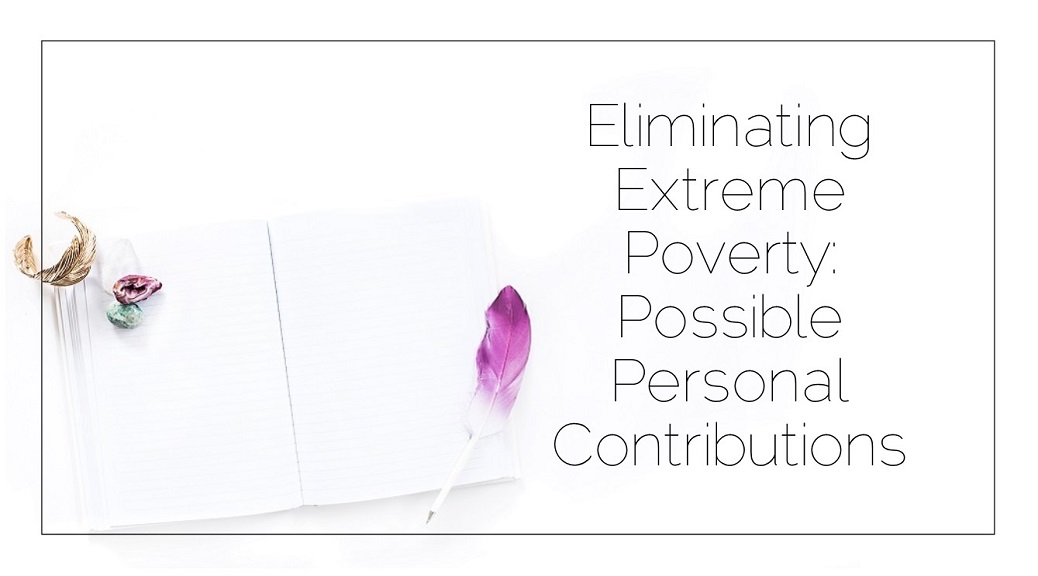I’ve been going through my older posts systematically in the last couple of weeks and taking the time to write an updated post on the many topics I touched upon since launching this blog in 2008. It’s interesting to see how some things have really not changed in the last nine years, how some have completely changed, and how others still have morphed into something that straddles the line between the 2008 me and the 2017 me–like some thoughts on extreme poverty.
I had for one completely forgotten about Blog Action Day, something I was super enthusiastic about when I first started blogging but have, since then, stopped participating in. It took me a little while to remember that it was a decision I took in order to blog more organically; in other words, rather than forcing out a post on a chosen topic, I preferred blogging about things that happened to me or around me, as an extension of the conversations I was having “in real life”.
I did, however, write one post as part of October 2008’s Blog Action Day about poverty that made me pause and think. I could feel how, on the one hand, I had forced the post out of me, and on the other, how true it remains to what I still believe today: that eliminating poverty needs the full participation of every single person, and that addressing poverty’s root causes will help solve other issues as well.
In short, I had written that, while giving people money and food and donating to various organizations as Sun Youth, Renaissance and The Old Brewery Mission does help, it doesn’t solve the causes of poverty, be it at the level of the structures of society or at the level of each person, both poor and not poor.
What about now?
These days, though, I am much more interested in what we can do at the grassroots to help alleviate poverty. The first is an attitude change. For example, a person living in poverty is still worthwhile, is still a dignified human being, and still has amazing capacities. They don’t need us to “save” them, but they do need to be given the opportunity to lift themselves out of poverty.
I would like to give almost the same three suggestions that I gave nine years ago in this regard. The first is to sponsor a child so that he or she can get an education. You can go through an organisation or find a school that accepts direct donations, such as Zambia’s Banani International Secondary School. The second was to go for a period of service, however short it may be, to assist efforts at the grassroots to provide children with a solid education. I would suggest, in 2017, that those who cannot offer such a period of service consider mentoring young ones right here at home. The third suggestion was to contribute to microcredit schemes (more on the topic here and here). The updated version of that advice would also include to buy, as much as possible, local.
Final thoughts
But ultimately, I think that the real, sustainable answer to poverty on a global scale is figuring out how to redistribute wealth in such a way that no one person is ever again to be found in abject poverty, no any one person is able to have so much money that they just don’t know what to do with it. And while it might seem like a huge challenge that you and I, mere inhabitants with no international influence, cannot possibly address, our day-to-day choices will contribute to changing the patters in our society that contribute to the current massively unequal distribution of wealth. It’s only a matter of taking our rightful place as protagonists of change.
{ Sahar’s Blog is all about being in a constant state of learning. So it only made sense for me to go back to all my previous posts and see how my thoughts on certain topics have changed over the last nine years. In this new, ongoing series of posts, I’ll be rereading some of my older posts and reflecting on the same topic in light of what I’ve learned since then. It’s going to be very interesting to see how things have changed! }


What a fascinating journey you’re sure to go on as you reexamine old posts! I’ve been doing something similar- going back and updating old posts or using them as a springboard to inspire new ones.
I recently read Trevor Noah’s Born a Crime, and one thing he said really stuck with me: You should teach someone to fish instead of just giving them a fish—but then you have to give them a fishing pole, too.
Isn’t it mind-blowing how much we can change in the span of a handful of years? I’m loving my trip down memory lane! And imagine, in another 8-10 years, we can have the same conversation 😉
I love that quote btw–we tend to simplify things, to the point of forgetting the obvious!